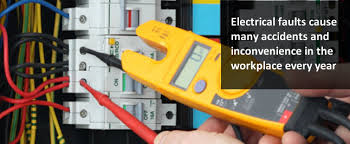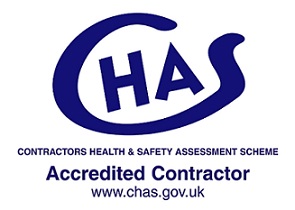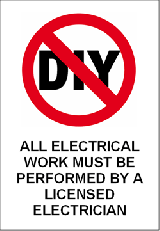Tags
#entrepreneur, #growing, blog, business, chas, commercial, construction, Danger, domestic, electric, electrical, electrician, health and safety, industrial, information, information blog, inspection, Insurance, job, Landlord, Law, Legal, NICEIC, Property, safety, south wales, swansea, swansea electrician, wales, work, work blog
The Importance of Electrical Inspection and Testing
Periodic inspection and testing is necessary because all electrical installations deteriorate due to a number of factors such as damage, wear and tear, corrosion, excessive electrical loading, ageing and environmental influences. Electricity can be seen as an ‘invisible danger’ that can cause people to have shocks, burns or even death, as well as severe damage to properties, fires and explosions.
Periodic Inspection & testing should only be carried out by an electrical competent person, such as a registered electrician, so don’t go trying it at home, give us a call.

DID YOU KNOW?
- Electricity causes 20,000 fires per year and is one of the major causes of fire in properties.
- Electricity kills one person every week.
- Electricity causes 1000 people to become injured every week.
- Every year, 1000 electrical accidents at work are reported.

ARE THERE LEGAL REQUIREMENTS FOR ELECTRICAL TESTING?
It is a statutory requirement that commercial properties and properties where the public have access; are regularly checked and that an EICR (Electrical Installation Condition Report) is performed on the electrical services.
The combination of the Health and Safety at Work Act (1974) and the Electricity at Work Regulations (1989) make it a requirement to inspect and test all types of electrical equipment in all work situations as there is a duty of care to ensure the safety of all persons using the work premises and to prevent, so far as reasonably practicable, such danger.
There are many reasons not to do periodic electrical test and inspection such as cost, inconvenience or lack of knowledge. However none of these reasons will be accepted as a defence in the event that an accident or fire occurs. Aside from the threat of prosecution in the event of injury or death, surely the safety of your colleagues, employees, visitors or belongings are reason enough to test and inspect electrical systems at work.
Landlords
All landlords have a legal obligation under the Consumer Protection Act 1987 to ensure the electrical installation and the electrical equipment supplied is safe, failure to do so can carry a maximum penalty of a £5000 fine or six months imprisonment!
The Frequency of testing for Electrical Installations should be:
- Churches (over 5 years) – Every 1 year
- Public places (Hotels, Restaurants etc) emergency lighting/fire alarms – Every 1 year
- Industrial properties – Every 3 years
- Commercial properties – Every 5 years
- Domestic properties – Every 10 years
The frequency of testing for Portable Appliances (P.A.T) should be:
- Industrial/workshops – 6 months
- Commercial (normal or Class 1) – 12 months
- Commercial (low risk/class 2) – 24 months or more
Some organisations e.g. insurance companies, licensing authorities, public bodies and mortgage lenders require that electrical installations undergo regular periodic inspection and testing.
WHAT ARE THE BENEFITS?
Undertaking regular periodic inspection and testing of an electrical installation will both promote safety and ensure legal compliance. It will protect people from electric shock, protect property from damage caused by fire and heat arising from a defect, confirm that the installation is not damaged or deteriorated so as to impair safety, and identify any defects or non-compliance which may give rise to danger.
THE MAIN AIMS OF A CONDITION REPORT:
- Record the results of the inspection and testing to make sure the electrical installation is safe to be used until the next inspection (following any work needed to make it safe).
- Find any damage and wear and tear that might affect safety, and report it.
- Find any parts of the electrical installation that do not meet the IEE Wiring Regulations etc. overloaded circuits, potential fire risk, faulty wiring.
- Help find anything that may cause electric shocks and high temperatures.
- Provide and important record of the installation at the time of the inspection, and for inspection testing in the future.
TYPES OF CONDITION REPORT:
- Visual condition report – this does not include testing and is only suitable if the installation has been testing recently.
- Periodic inspection reports – this is what we would normally recommend, as it tests the installation and would find any hidden damage.
After the inspection and testing has taken place, we issue an Electrical Installation Condition Report (EICR) that details any damage, deterioration, defects and dangerous conditions. If anything dangerous or potentially dangerous has been found, then the condition of the electrical installation will be declared as ‘unsatisfactory’, meaning that remedial action is required ASAP to remove the risks.
If you need any more information regarding electrical inspection and testing, require a quote or would like to book a test, contact us now on:
Email: enquiries@almelectrical.co.uk
or
Mobile: 07962161766




















 At ALM Electrical, it business as usual! work is flowing at a steady pace, which is keeping us really busy! We are in the process of growing the company and welcoming new staff. So the company is going from strength to strength with thanks to our new/old customers and loyal hard working staff!!
At ALM Electrical, it business as usual! work is flowing at a steady pace, which is keeping us really busy! We are in the process of growing the company and welcoming new staff. So the company is going from strength to strength with thanks to our new/old customers and loyal hard working staff!!

